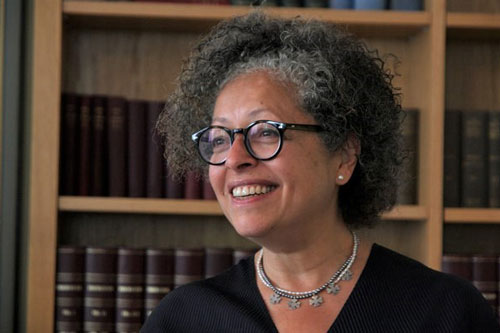Earned Resilience and Learned Optimism
Since the pandemic, leaders in the nonprofit sector have reported being busier than ever. Working with them over the past two years, in precious cases of protected time for coaching, consulting and leadership learning, has been an extraordinary privilege.
Reflecting on the experiences of coping through Covid-19, on the anxieties of uncertainty, and the responsibilities of the role has been as hard to hear, as it has been heartening. It has served as an important reminder of the transformative potential of coming through difficulty. This is not to lionise leaders, to glorify trauma and adversity, nor to underplay the immense suffering that so many have endured. Rather, it is to emphasise the importance of what leaders can learn from their experiences, and how they put that learning to use.
Earned resilience
Sometimes we have to contend with sudden or unexpected personal and professional adversities that turn our lives, our organisations and our faith in ourselves, upside down. Adversities that can bring in their wake profound and positive learning. Psychologist William James was one of the first to explore the value of dissonant and difficult life events, and the part they play in bringing about the spiritual awakening and development of individuals.
More recently, attention has focused less on religious and spiritual rebirth, and more on the psychological processes of extensive re-evaluation and deep maturation that adverse experiences, some extreme, and many less so, can often set in motion.
The phenomenon that I have come to call ‘earned resilience’ is not a universal response to adversity and radical disruption and uncertainty, but it is increasingly well documented. Research into post-traumatic growth in leaders, has helped us better understand our ability to learn from, and through, profound experiences of loss, change, disorientation, and uncertainty. Theorists of adult learning have come to similar conclusions, underscoring the importance of deep discomfort and disorientation in the process of transformational learning.
Learned optimism
We have witnessed many leaders make use of the personal and professional hardships and adversities that uncertainty and disruptive change within and around the organisations can create. For these leaders, these adversities can become real catalysts for positive psychological growth and adaptation.
The discovery of new ways of being and doing can become a viable alternative to paralysing self-doubt or false optimism. Differentiated from the discomforts of having to sit with ‘not knowing’, and the frustrations of being in charge, but not in control, different habits find room to grow. The habits of learned optimism and hope.
The habits of grounding ourselves in what we learn from deeply difficult experiences, from living with disruption and uncertainty. Earned resilience and learned optimism set us on a different trajectory, transforming our feelings and our frame of reference, helping us to discover sources of wisdom and inspiration in unexpected places.

Tammy Tawadros, July 2022, all rights reserved.
Tammy Tawadros is an executive coach, a Bayes Centre for Charity Effectiveness (CCE) organisational consultant and work psychologist with many years’ experience of design and delivery of a broad range of leadership, organisational development and culture change initiatives. She also co-leads CCE's Aspiring Chief Executives programme and New Chief Executives programme.
She has received support from the Bayes Knowledge Exchange and Impact Fund to create the ‘Building the road as We Walk’ research project, the findings of which will be published this autumn as an online resource for nonprofit sector leaders to address how they may lead and implement their strategic work in uncertain times.
Read Tammy's blog on living and leading in uncertain times.